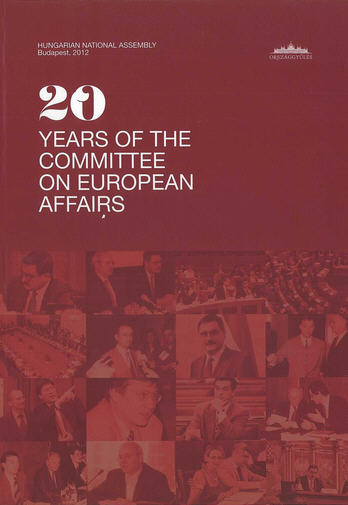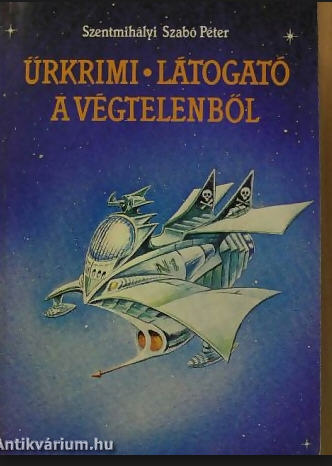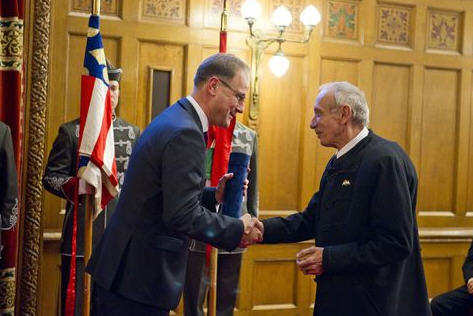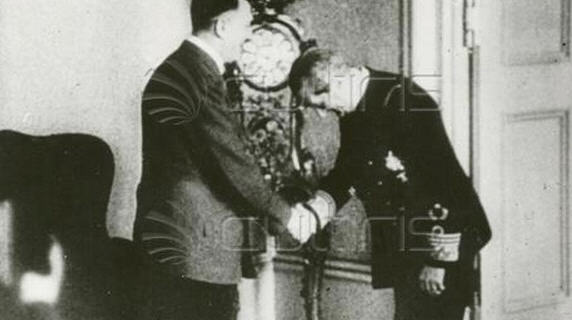The translation of Péter Szentmihályi Szabó’s article on the “agents of Satan” three days ago on Hungarian Spectrum has reawakened international scrutiny into the real nature of Viktor Orbán’s regime. Immediately after the document’s publication letters started pouring into the Italian Foreign Ministry and the Italian embassy in Hungary asking the Italians not to accept Szentmihályi Szabó as Hungary’s envoy.
Yesterday morning the Jewish Telegraphic Agency published a short article in which they said:
Eva Balogh described Szentmihályi Szabó as a “raging” and “inveterate” anti-Semite. She quoted an article written by him in 2000 in the far-right Magyar Forum, called “The Agents of Satan,” which, though it doesn’t specifically use the term “Jew,” clearly describes Jews in classic anti-Semitic terms similar to those used in Nazi propaganda.
The Hungarian Jewish leadership did not immediately respond to the nomination. But a source close to the leadership of the main Jewish umbrella group Mazsihisz told JTA that the nomination was a “very unfriendly gesture from the government” during the year designated by the government as an official Holocaust Memorial Year.
Vox.com also noticed my post and quoted at some length from Szentmihályi Szabó’s infamous article, describing it as “pretty appalling stuff.” According to the journalist responsible for the article, this latest development is “especially troubling given that it happened in Hungary, where there has been a trend of anti-Semitism… [T]hough right-wing Prime Minister Viktor Orbán condemns anti-Semitism, his government doesn’t have the best track record on it.”
And finally today the World Jewish Congress raised its voice in protest. Let me quote the text of the press release in full:
The head of the World Jewish Congress (WJC) on Thursday said that appointment of Hungarian far-right publicist Péter Szentmihályi Szabó as Hungary’s ambassador to Italy was “clearly an affront to Jews”. WJC President Ronald Lauder urged Italy to refuse the accreditation of Szentmihályi Szabó, who has penned anti-Semitic texts in the past.
“A man who suggests that Hungary’s Jews are ‘agents of Satan’, ‘greedy, envious, evil and ugly’ is not fit to represent his country abroad, and Prime Minister Viktor Orbán would be well-advised to withdraw this man as soon as possible and look for a person who is suitable for this job,” said Lauder.
“It is particularly sad and irritating that Hungary, which declared 2014 as Holocaust memorial year, is once again in the news with this sort of thing. How can an anti-Semite represent a government whose leader pledged a policy of zero tolerance toward anti-Semitism?” Lauder asked, referring to Orbán’s speech before the World Jewish Congress Plenary Assembly in Budapest in May 2013. He said decisions such as this would do further damage to Hungary’s reputation abroad and “not inspire confidence that the Orbán government means business when it says it will fight anti-Semitism.”
The WJC leader expressed hope that, given Italy’s history and strong commitment to fight racial hatred and anti-Semitism, the Italian government would not accept an outspoken extremist and Jew-hater as a member of the diplomatic corps in Rome.
The appointment by Budapest of the 69-year-old Szentmihályi Szabó comes after a recent decision by the Hungarian government to build a controversial World War II monument that obfuscates Hungary’s role in the deportation of Jews to the Nazi death camps in 1944.
Meanwhile Péter Szentmihályi Szabó acts as if nothing has happened. Or at least he pretends that all this “noise” doesn’t bother him a bit. Rather, he seems to be proud of his name being bandied about in the Hungarian and the foreign press. He shared his reactions in his regular column in the far-right Magyar Hírlap called “Sarkosan fogalmazva,” which is perhaps best rendered as “Not beating around the bush.”
Actually, Szentmihályi Szabó exaggerates somewhat. Only about three dozen articles appeared about him, mostly in the liberal press. None in Magyar Nemzet or Válasz. Naturally, Magyar Hírlap, his own paper, reported disapprovingly that “Gyurcsány and Co. are asking Europe’s help in the matter of Péter Szentmihályi Szabó” and republished DK’s protest released by the party’s press department. In addition, László Domonkos, a journalist who since 1990 has written a number of books for far-right publishing houses, expressed his absolute delight that “István Csurka’s comrade-in-arms” received the honor of being able to represent Hungary in Rome. The late István Csurka was a self-professed anti-Semite who established MIÉP (Magyar Igazság és Élet Pártja/Party of Hungarian Truth and Justice) in 1993. Domonkos, I might add, wrote a biography of Csurka (Kárpátia Studió, 2012). He is on the editorial board of Trianoni Szemle (Trianon Review) and a frequent contributor to Nagy Magyarország (Greater Hungary).

Publication of the Committee on European Affairs which was responsible for the nomination of Péter Szentmihályi Szabó
And finally, let me talk about an article written by Attila Ara-Kovács, a journalist and former diplomat, in Magyar Narancs where he has a regular column, “Diplomáciai jegyzet” (Diplomatic Notes). His latest piece is on Szentmihályi Szabó’s appointment. Its title is “To Rome with Love,” a reference to the Woody Allen movie of the same name.
Ara-Kovács, who is very well informed, suspects that there are serious differences of opinion over the direction of Hungarian foreign policy within Fidesz circles. The more conservative members have been worried about the worsening relationship between the Orbán government and the West. The first sign of discontent appeared in 2012 when it became clear that Orbán was taking Hungary in a direction that these conservative supporters or diplomats found injurious to the interests of the country. Turning to the East was bad enough, but when this new orientation culminated in the Putin-Orbán summit and the subsequent loan agreement, this was too much for these people who not surprisingly harbor anti-Russian sentiments from the days of the Kádár regime and are suspicious of Putin’s intentions. Then came what Ara-Kovács calls “the massacre” in the Foreign Ministry when about 200 people arrived from Tibor Navracsics’s Ministry of Administration and Justice and Péter Szijjártó’s Office of the Prime Minister. Naturally, a lot of old hands were fired to make place for the newcomers.
And now we come to the question of the source of the leak about the nomination of Péter Szentmihályi Szabó. Parliament is not in session, but the chairman of the Committee on European Affairs called the members together for an extraordinary session to discuss this particular nomination. The chairman of the committee is Richárd Hörcsik, who has been a member of parliament ever since 1990 when he belonged to the right-of-center Magyar Demokrata Fórum (MDF). Neither the Demokratikus Koalíció nor Együtt-PM is represented on this committee. There is one Jobbik member and two MSZP members. It turned out that both MSZP members, István Józsa ad Bertalan Tóth, were absent. Thus, the news that spread like wildfire about the committee giving its blessing to Péter Szentmihályi Szabó’s nomination must have come either from Jobbik or more likely from one of the Fidesz members of the committee. It looks as if this nomination was too much for somebody who seems to be worried about the foreign policy direction of the third Orbán government.


